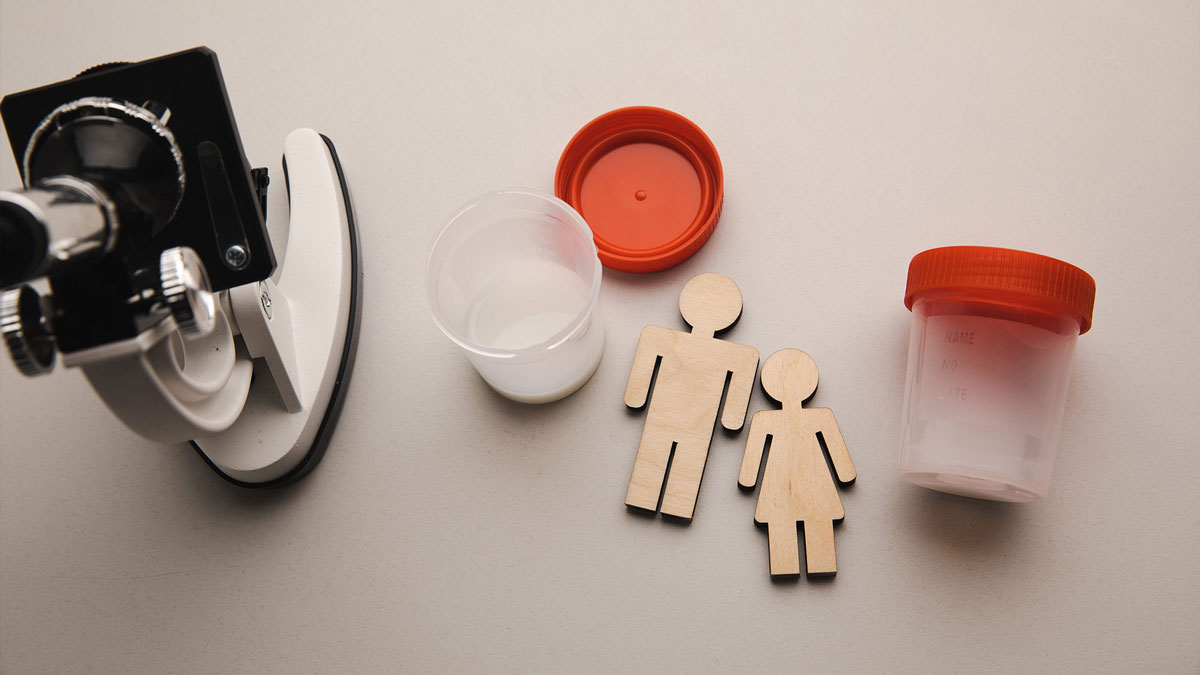- PUBLISHED July 5, 2023
- PUBLISHED July 5, 2023
- Stress, smoking or exposure to certain chemicals, such as those in plastics, may disrupt the male+ reproductive system.
- Lifestyle also plays a role. Obesity, lack of exercise and consuming fast food can all potentially reduce sperm’s effectiveness.
- Male+ fertility has been declining at an alarming rate in recent decades. But infertility isn't just a medical issue; it has deep emotional and societal implications too.
The alarming decline in male+ fertility: unravelling the causes behind the crisis
A volume of research conducted across decades is unequivocal – men+ today produce fewer and less healthy sperm than those who lived half a century ago. A systematic paper from 2017, analysing over 185 studies spanning four decades, for example, found a 60 percent decrease in sperm counts since the 1970s. 1
Individual research underscores the same conclusion – sperm quality across the world is declining, contributing to the struggles of people who are trying to conceive. 2 In fact, in about 35 percent of couples with infertility, a male+ factor is identified along with a female+ factor, while in an additional 10 percent infertility is attributed to male+ factors only. 3

What chemicals are bad for the sperm
Many reasons for declining male+ fertility can be traced back to modern-day lifestyle choices and environmental exposures. For example, it’s well established that certain pollutants and other toxins can decrease sperm concentration, motility (movement) and viability, defined as the percentage of live sperm in a semen sample. Pesticides, herbicides, heavy metals and toxic gases all act as endocrine disruptors that can potentially mess up the delicate hormonal balance in your body. 4
One of the most prevalent endocrine disruptors is bisphenol A, also known as BPA. Typically found in plastic containers, water bottles and food packaging, BPA can leach into food and beverages, from where it sooner or later ends up in our bodies. Studies on rodents showed that BPA exposure can lead to a significant decrease in sperm motility, count and increased DNA damage inside the sperm head, breaking up the strands and making conception unlikely. 5
Heavy metals such as cadmium, lead and arsenic, present in food, water and cosmetics, are also known to harm sperm health. 6 Pesticides have the same damaging effect when they interfere with testosterone production and sometimes lead to fertility issues.
Air pollution, too, is associated with a similar impact on semen. People working on highways, for example, exposed to nitrogen oxide and lead released from car exhausts, were found to have reduced sperm motility and sperm movement compared to other men+ living in the same area. 7



